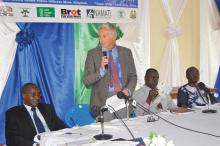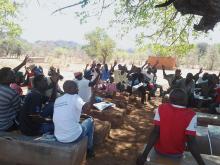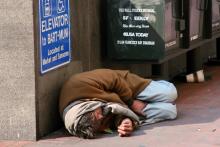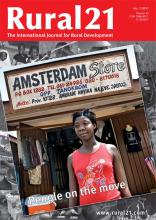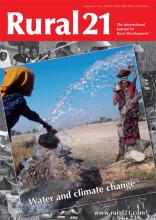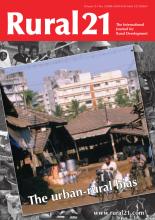/ library resources
Showing items 1 through 9 of 22.Sierra Leone is one of the least developed countries in the world and is still recovering from a civil war that ended in 2002.
Marked power imbalances often result in communities losing out in use conflicts over their territories and resources. This applies in particular to extractive industries and infrastructure projects.
Pastoralism – the predominant form of livestock keeping in the Horn of Africa – has always been a source of disputes and tensions in the region.
Despite good potential for food production, South Sudan’s agriculture is not feeding its population. The impacts of decades of armed conflict are posing enormous challenges for the sector.
The sheer number of refugees from Zimbabwe puts a heavy burden on the province of Limpopo in South Africa. These new arrivals strain the already weak structure of the local labour market. The result is frustration and bitterness for local people.
Labour migration, primarily to Côte d’Ivoire, masked the high rate of natural population growth in Burkina Faso for many years. However, since a political crisis began in this neighbouring country in late 1999, many Burkinabe have returned home.
The years of war have led to a rapid decline in the nutritional status of people in the Democratic Republic of Congo. To cover their protein requirements, the rural population in the Kivu region in the east of the country have turned to raising guinea pigs.
In Germany, the debate about the security/development nexus is gathering pace.
Six years after the fall of the Taliban, Afghanistan is a long way from political stability and economic progress.
Нумерация страниц
Land Library Search
Through our robust search engine, you can search for any item of the over 73,000 highly curated resources in the Land Library.
If you would like to find an overview of what is possible, feel free to peruse the Search Guide.

